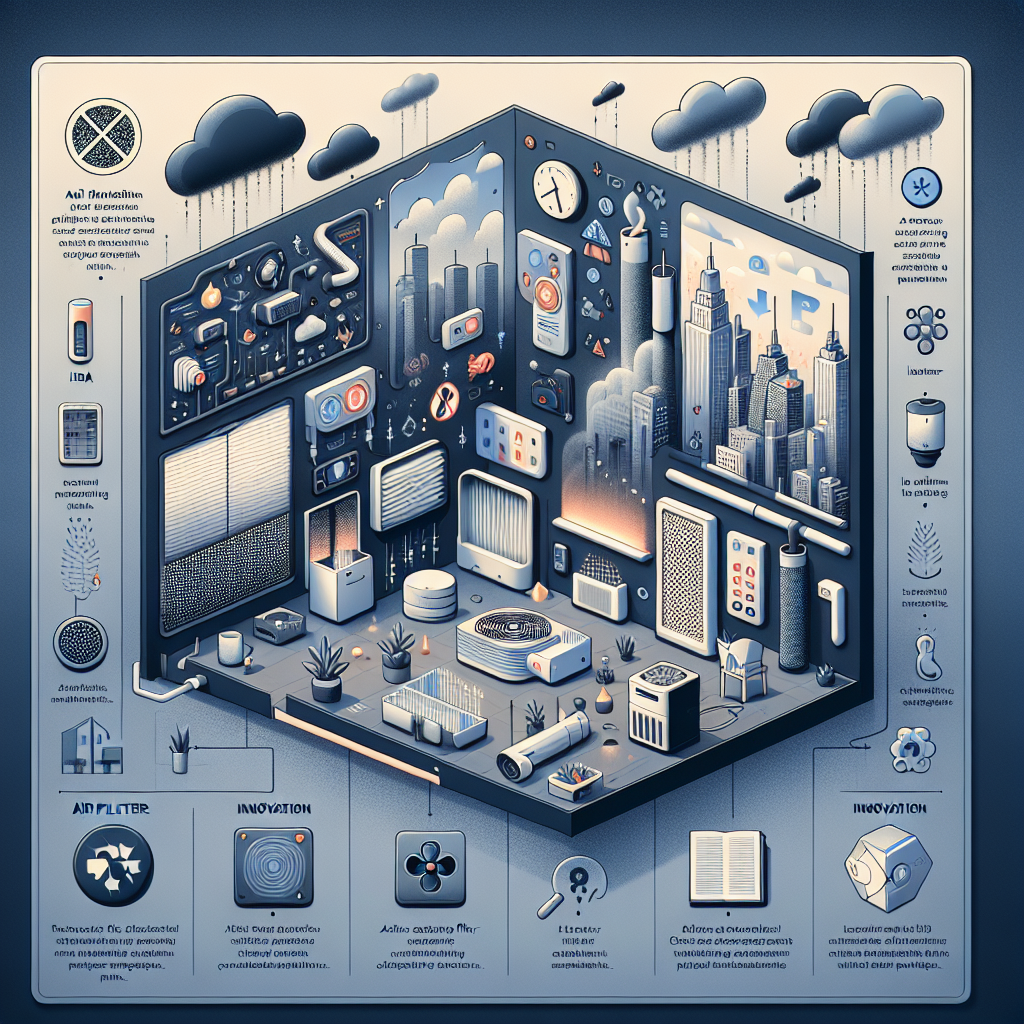Introduction to Air Filter Topic
Air pollution in cities is a problem that affects an increasing number of people. Smog, a mixture of harmful substances, not only worsens the quality of life but also has a negative impact on health. In response to these challenges, air filters are becoming an essential part of home and office equipment. In this article, we will examine various types of air filters, their effectiveness in urban smog conditions, and their application methods.
Types of Air Filters and Their Effectiveness
Various types of air filters are available on the market, each designed to combat specific pollutants. HEPA filters, activated carbon filters, ionizers, and photocatalytic air purifiers are just some of the available solutions. It is crucial to choose a filter that best meets the specific needs of a particular environment. The effectiveness of air filters in urban smog conditions depends on many factors, including the size of particles they can capture and their ability to neutralize harmful gases and odors.
How to Choose the Right Air Filter for Your Needs?
The choice of the right air filter should be primarily dictated by the type and concentration of pollutants present. It is important to pay attention to parameters such as CADR (Clean Air Delivery Rate), which determines filtration efficiency, and the class of HEPA filter. Additionally, the size of the room where the filter will be used and the frequency of filter element replacement should be taken into account.
Air Filters and Health – What Are the Benefits of Their Use?
Regular use of air filters brings many health benefits, especially in areas with high smog concentrations. These filters can help reduce allergy symptoms, asthma, and other health problems caused by polluted air. Additionally, they improve the overall air quality in indoor spaces, leading to better well-being and productivity.
Innovations in Air Filtration – What’s New on the Market?
Air filter manufacturers are constantly working on developing new technologies that will provide even more effective protection against smog and other pollutants. Among the innovations, it is worth mentioning intelligent filtration systems that adjust their operation to the current level of pollution, as well as filters using nanotechnology to capture ultrafine particles.
Common Mistakes in Using Air Filters
Improper use of air filters can significantly reduce their effectiveness. The most common mistakes include insufficient filter replacement, using devices that are inadequate for the size of the room, and neglecting regular cleaning of filter elements. To avoid these mistakes, it is important to carefully read the operating instructions of the device and follow the manufacturer’s recommendations.
Fun Facts About Air Filters
- Some air filters are equipped with air quality sensors that automatically regulate the device’s operation.
- HEPA filters were originally developed in the 1940s for use in the nuclear industry.
- There are air filters that can be controlled via a mobile application.
- In some countries, such as South Korea, the government subsidizes the purchase of air filters for schools and kindergartens.
Why It’s Worth Investing in High-Quality Air Filters?
Investing in high-quality air filters is an investment in health. These devices not only protect against smog but can also contribute to reducing the risk of respiratory diseases. It is important to choose devices from reputable manufacturers that have the necessary certifications and have been tested for effectiveness.
What Are the Alternative Methods for Air Purification at Home?
In addition to using air filters, there are also other methods for air purification at home. The most popular ones include natural methods, such as using air-purifying plants, regular ventilation of rooms, and using natural cleaning agents. However, it is important to remember that these methods may only complement, rather than replace, professional air filters.

